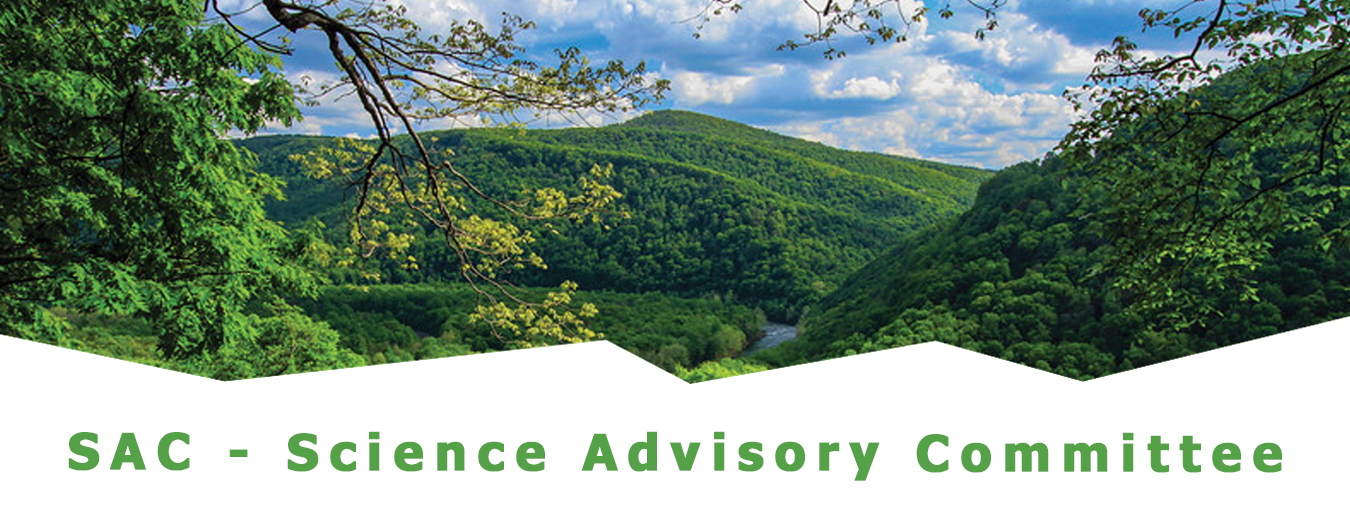
The Natural Areas Association promotes science-driven conservation practices in natural areas management. To that end, the organization has established a Science Advisory Committee comprised of some of North America’s leading authorities on the conservation of biological diversity. The NAA Science Advisory Committee advises the organizations Board of Directors and staff on developing critical issues regarding the identification, protection, restoration, study, public uses, and stewardship of natural areas. Members of the Natural Areas Science Advisory Committee include:
Dr. Reed Noss is a writer, photographer, lecturer, and consultant in natural history, ecology, and conservation. He was formerly Provost’s Distinguished Research Professor of Biology at the University of Central Florida. He received his Ph.D. in wildlife ecology from the University of Florida. He served as Editor-in-Chief of Conservation Biology, Science Editor for Wild Earth magazine, and President of the Society for Conservation Biology. He is an Elected Fellow of the American Association for the Advancement of Science. His recent research topics include disturbance (especially fire) ecology; ecosystem conservation and restoration; road ecology; and vulnerability of species and ecosystems to climate change and sea-level rise. He has more than 340 publications, including eight books.
Dr. Greg Aplet is Senior Science Director with the Wilderness Society, for which he has worked since 1991. He has a PhD in Forest Ecology from Colorado State University. He is an Associate Editor for the International Journal of Wilderness and previously served as an Associate Editor for Ecological Applications. Greg has contributed to a variety of Wilderness Society priorities, including the conservation of Pacific Northwest forest ecosystems, biodiversity conservation in the Southern Appalachians, planning for the Grand Staircase-Escalante National Monument, restoration of ecosystem health in fire-prone western forests, and climate change adaptation. He is the author of numerous publications on the effects of disturbances on Rocky Mountain and Hawaiian forests, the ecology of biological invasions, the conservation of biological diversity, and wildland fire and wilderness management.
Dr. Pat Comer is Chief Ecologist with NatureServe, where he directs the Ecology Department from the Boulder, Colorado office. For over 30 years, his applied research has focused on ecosystem classification, spatial modeling, ecological assessment, and systematic planning support for conserving biodiversity and sustainable development. Pat received his PhD from the University of Michigan, Ann Arbor, in Forest and Landscape Ecology. He served in the Peace Corps in Costa Rica, working in agroforestry with rural cooperatives. In 1990, after returning to the United States, he worked as Ecologist in the Michigan Natural Features Inventory.
Dr. Carolyn Enquist is the Deputy Director of the USGS Southwest Climate Adaptation Science Center in Tucson, AZ. Over the past two decades, Carolyn has worked for the National Wildlife Federation, the National Park Service, the Forest Service, The Nature Conservancy, The Wildlife Society and the USA National Phenology Network. She has largely focused on management implications of climate change for biodiversity conservation. She has both led and contributed to numerous peer-reviewed articles and national reports focused on the biodiversity impacts of climate change, practical guidance for conducting vulnerability assessments, and the practice of climate adaptation planning and implementation. She received M.S. and Ph.D. degrees in ecology from the University of New Mexico.
Dr.Jerry Franklin is a world-renowned forest ecologist who has been called the father of new forestry. He is a leading authority on sustainable forest management and the maintenance of healthy forest ecosystems, and was responsible for integrating ecological and economic values into harvest strategies. In addition to his research, he has served on numerous committees and working groups, and has been President of the Ecological Society of America.
John Riley serves as Science Advisor Emeritus, of the Nature Conservancy of Canada, from which he retired in 2015 as Chief Science Officer and National Director of Conservation Strategies, and as Board Member for NCC Ontario Region. John serves on the Province of Ontario Advisory Panel on Climate Change. Former positions include ecologist with the Ontario Ministry of Natural Resources, the Ontario Natural Heritage Information Center (which he co-founded), and as Executive Director of the Federation of Ontario Naturalists. His books include The Once and Future Great Lakes Country: An Ecological History.
Dr. Hugh Safford is Regional Ecologist for the USDA-Forest Service’s Pacific Southwest Region (California, Hawaii, Pacific territories), and a member of the research faculty in the Department of Environmental Science and Policy at the University of California-Davis. Safford manages a boundary-spanning unit of Forest Service ecologists that provides expertise in vegetation, fire, and restoration ecology, climate change, inventory, and monitoring to the 18 National Forests in the Pacific Southwest Region.
Support the people who manage our natural areas and protect biodiversity in perpetuity.